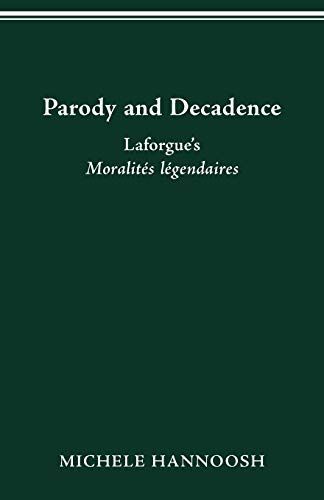
Parody and Decadence Laforgue's Moralités Légendaires
Laforgue's collection of stories, the "Moralites legendaires, " freely modernizes established stories of literary tradition according to the stereotypical preoccupations of 1880s Decadence. In this first complete study of the "Moralites" in any language, Laforgue's stories emerge as brilliant examples of parody in its most creative form, among the most original prose creations of the late nineteenth century. Laforgue is known to most English-speaking readers as an influence on T. S. Eliot. In France he is considered a major writer, alongside Symbolist writers such as Baudelaire, Rimbaud, and Mallarme. Laforgue's stories fully exploit the creative possibilities of parody, and thus make a particularly illuminating contribution, resolving many long-standing theoretical questions. The stories provide a rich source for investigating the procedures of parody and for formulating a sufficiently general and flexible theory to account for the diversity of its form over time. Hannoosh examines the 1880s notion of Decadence with which Laforgue's "Moralites" plays and attempts to revise the prevailing view of the movement to reflect the importance of parody therein. She provides close readings of the six stories: "Hamlet, Le Miracle des Roses, Lohengrin, Salome, Persee et Andromede, " and "Pan et la Syrinx." Using an intertextual model of literary theory, Michele Hannoosh derives a theory of the genre overall and addresses the issues raised by metafictional theories of parody from the Russian Formalists onward. Michele Hannoosh is Assistant Professor of French and Comparative Literature at the University of California, Davis. She has written many articles on nineteenth-century French literature and art."